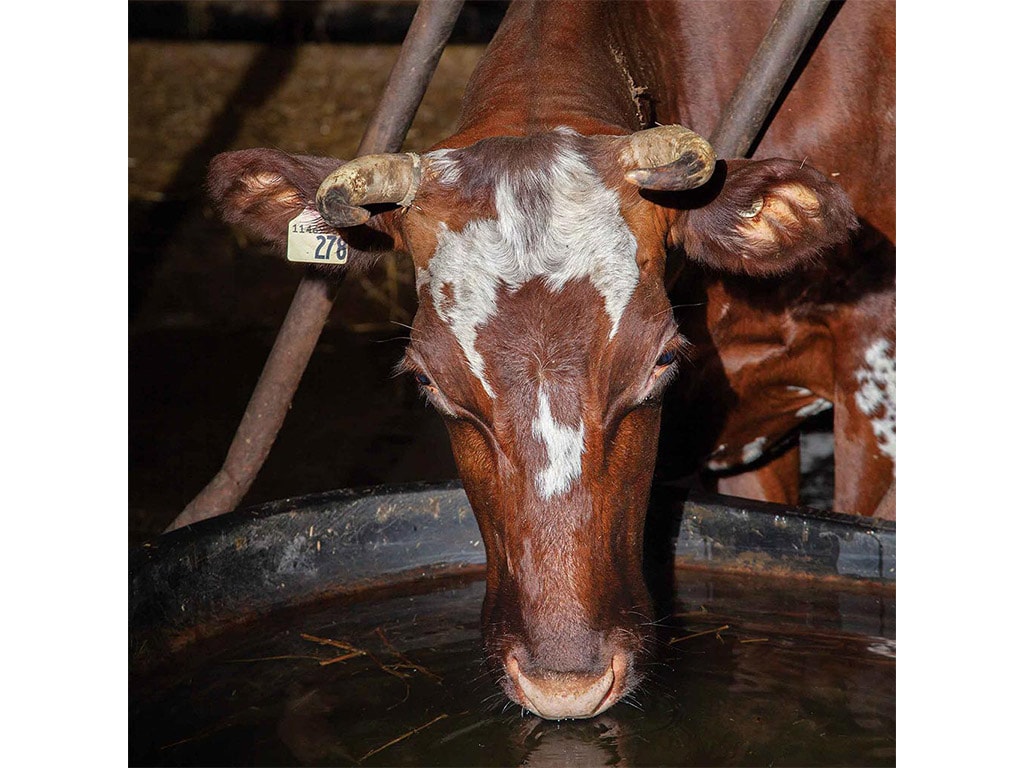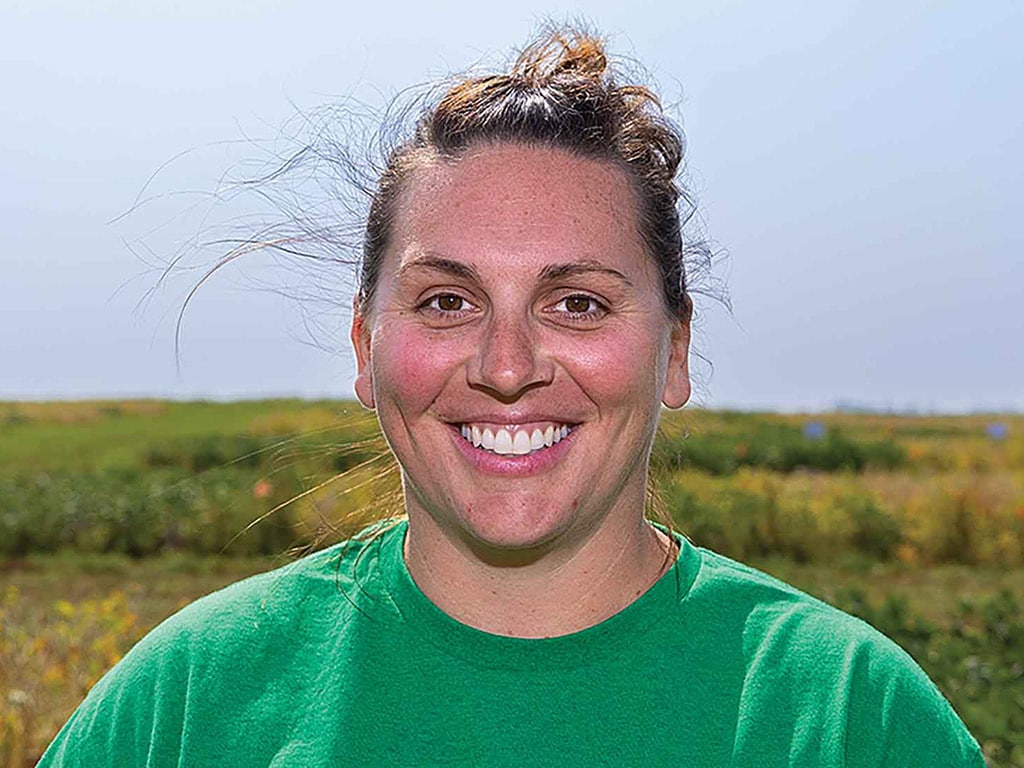Agriculture, Education March 01, 2024
Soil Sisters
.
Field day aims at women passionate about soil health.
Several years ago, the last place you'd expect Samantha Nelson to be was at a University of Minnesota (U of M) soil health field day. Yet, there the Hector, Minnesota, farmer was, soaking up all things soil and soil health.
Many farm meetings tend to be male-dominated. Not this one. Titled "Thriving Roots," this September 2023 field day in Morris, Minnesota, was aimed at women who are passionate about soil health and want to bring those ideas back to their farms, says Jodi DeJong-Hughes, U of M Extension educator.
"It was fun to have people here as excited about soil as I am," DeJong-Hughes says.
The field day was a component of the University of Minnesota Women in Ag Network launched in 2017.
"It [the Network] was created knowing it is important to provide education for women who farm," says Susanne Hinrichs, a U of M Extension educator who coordinates the Women in Ag Network. "This helps them know what resources are available to be an equal partner in decision making and all the pieces that go into running a farm. It recognizes that not only are women farm operators, but also managers, too."
Soil class. The idea for last September's field day originated in a January 2023 Women in Ag conference in Willmar, Minnesota.
"I did a soil class and received much positive feedback," says DeJong-Hughes. "The women who were there just loved soils."
Hinrichs proposed DeJong-Hughes host a soil field day just for women.
"I was already planning for a soil field day in September, so we added a second day for a women's program," says DeJong-Hughes.
It's important to note that the soil health community is a welcoming one, and this applies to men as well as women, adds DeJong-Hughes. She has witnessed men aiding women farmers within this community.
"That's what we want to happen on the female side," she says.
Planning for a female-only event differs from other Extension events, says DeJong-Hughes.
"We wanted a place they could be comfortable," she says. A great way to accomplish this was to have women experts as speakers and presenters, she says.
"There is so much female expertise in agriculture right now," says DeJong-Hughes. "Fifteen years ago, there really wasn't."
They also designed the program to allow ample time for attendees to network. "Women learn so much talking things through with each other," says Hinrichs.
A women-only event can also ease anxiety about asking questions of experts.
"Women tend to be more comfortable around other women in asking questions," says Hinrichs.
That was true in Nelson's case.
"Even as an adult woman, it's intimidating to go into a room with 400 men," she says. "They were taught from little boys growing up that it was acceptable to farm. I just might as well be in a different room. Here, there is more room for one-on-one conversation and network building."
Above. Anna Cates, University of Minnesota soil scientist, discusses cover crops for attendees such as Samantha Nelson, a Hector, Minnesota, farmer.
Return to her roots. Nelson started her career in education and health care. After a while, though, she knew she wanted to return to her family's farm and run her own business.
"During the COVID time period, I started my own company helping farmers with strategic planning," Nelson points out. "I also wanted to spend more time with my family and work outside. I finally had a conversation with my dad and asked him, 'Can I farm with you?'"
The answer was yes, and it's been a whirlwind since.
"I also helped my husband run the custom application business he started," she says. "We cover 10 to 12 counties in Minnesota. Last summer, we went 65 days straight sidedressing nitrogen and applying fungicide. So, it's been an interesting journey shifting from a path expected of me as a woman and then beginning to take over the family farm."
Since she started farming, Nelson has used several information sources and programs. She enrolled in Annie's Project, a national non-profit program that's helped 19,000 women in 38 states and the U.S. Virgin Islands gain agricultural business skills. Areas include negotiating farmland leases, building fences, raising livestock, and other topics through classes and one-on-one meetings.
"The reason I attended the soil health field day is I want quality information and research," she says. "I get information from various seed companies, but it's interesting to also get information from the University of Minnesota. It's just a little different angle with a different perspective."
U of M Extension also sells no products, adds Hinrichs. "It provides relevant information that is research-based," she says. ‡
Read More

AGRICULTURE, LIVESTOCK/POULTRY
A Matter of Quality
Water management pays big dividends.

AGRICULTURE, AG TECH
Tech@Work
John Deere Precision Upgrades—making your current fleet the best it can be.



